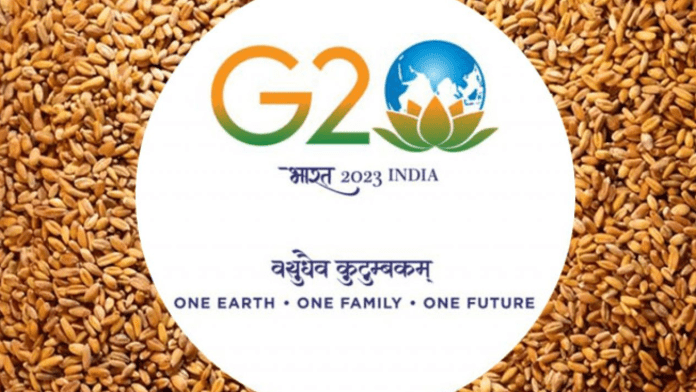The G20, representing leaders from the world’s largest economies, has made a collective commitment to address global hunger and malnutrition, in accordance with the New Delhi Leaders’ Declaration. This dedication is in harmony with the 2023 G20 Deccan High-Level Principles on Food Security and Nutrition.
The declaration emphasized the pressing need to enhance research collaboration concerning climate-resilient and nutritious crops, including millets, quinoa, and sorghum, while also underscoring the importance of traditional staples like rice, wheat, and maize. This follows the successful conclusion of the 12th G20 Meeting of Agriculture Chief Scientists (MACS).
In addressing the broader agricultural requirements, G20 leaders also underscored key areas demanding immediate attention. These encompass enhancing access to and the efficient utilization of fertilizers, strengthening local fertilizer production, and prioritizing soil health.
At the core of their dedication lies a strong emphasis on promoting innovations and investments aimed at improving agricultural productivity, reducing food waste, and reinforcing sustainable and climate-resilient food systems. Furthermore, G20 leaders reaffirmed their commitment to assisting developing nations in achieving their food security objectives and ensuring the universal right to sufficient food for all.
The leaders, in their collective commitment, also vowed to assist developing countries in enhancing their capacity to confront food security issues. They pledged to collaborate in making affordable, safe, nutritious, and healthy diets accessible and in facilitating the gradual realization of the right to adequate food.
According to the declaration document, the leaders have committed to promoting open, fair, predictable, and rules-based trade in agriculture, food, and fertilizers. They will facilitate trade while refraining from imposing export prohibitions or restrictions and aim to reduce market distortions, all in accordance with relevant WTO rules.
The leaders reached a consensus on bolstering the Agricultural Market Information System (AMIS) and the Group on Earth Observations Global Agricultural Monitoring (GEOGLAM). This initiative aims to enhance transparency in order to mitigate food price volatility. Their agreement includes supporting AMIS in its efforts related to fertilizers, expanding its scope to encompass vegetable oils, and fostering increased collaboration with early warning systems.
While global food and energy prices have receded from their previous peaks, the potential for significant volatility in these markets persists, owing to uncertainties within the global economy.
“In this context, we take note of the G20 Report on Macroeconomic Impacts of Food and Energy Insecurity and their Implications for the Global Economy. We look forward to an ambitious replenishment of the International Fund for Agricultural Development (IFAD) resources at the end of the year by IFAD members to support IFAD’s fight against food insecurity,” it read.





